Smokey Wilson
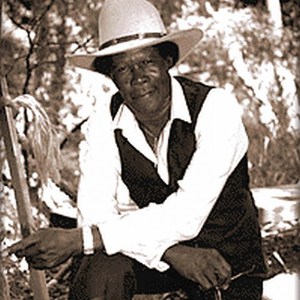
- Genre:
- Blues
- Meta styles:
- Early Acoustic Blues, Electric Blues, Jump Blues/Piano Blues
Smokey Wilson remains one of America's most precious and irreplaceable treasures, the Bluesman. Born in Mississippi in 1936, Robert Lee 'Smokey' Wilson learned the blues at the feet of legends like Elmore James, Jimmy Reed, Howlin' Wolf and B.B. King. As a child, Smokey's burning desire to play the blues had to be satisfied on a home-made broom handle and bailing wire guitar until his mother bought him his first acoustic at thirteen.
As a child, Smokey's burning desire to play the blues had to be satisfied on a home-made broom handle and bailing wire guitar until his mother bought him his first acoustic at thirteen. He would soon be known as 'Mississippi Smokey' in and around his hometown of Glen Allan. Nearby Greenville was a hot bed of blues activity and spawned a new generation of blues men that carry on the tradition today. Artists such as Little Milton, Tyrone Davis, Frank Frost, Sam Carr, Big Jack Johnson along with Smokey were nur?tured in the juke joints around Greensville. Smokey played drums and bass in his older brother's band until he could outplay his sibling on guitar. The band was then renamed "Little Robert & the Soul Searchers" and toured southern juke joints with Roosevelt 'Booba' Barnes.
After the death of his mother in 1970, Smokey went west to Los Angeles where the blues scene was still burgeoning. He soon opened the Pioneer Club just outside the tough LA neighbourhood of Watts and Smokey recalls with pride that he kept it packed for twenty years. Regularly featured guests included Big Joe Turner, Pee Wee Crayton, Shakey Jake, Big Mama Thornton, Percy Mayfield, Johnny Dyer, Albert Collins and George 'Harmonica' Smith. The club also provided a proving ground for many young, aspiring white blues artists such as Rod Piazza, William Clarke and Hollywood Fats.
Smokey is difficult if not impossible to categorise. Possessor of a powerful voice, he can bellow like the wolf or cry sweetly like B.B. King or Tyrone Davis. Smokey's guitar playing is equally diverse as he romps through the stylings of Elmore James and Jimmy Reed one song and then polished urban blues the next. He also digs into the soulful side a la Z.Z. Hill and Tyrone Davis which was extremely popular with the pa?trons of the Pioneer Club, Smokey's dyncamic singing and playing bare the influences of these greats, not by imper?sonation, but by the fact that Smokey is the genuine article. He has traveled the same roads, played the same clubs and shared the same stages.
Unfortunately Smokey's success at the Pioneer club did very little for his reputation outside the West Coast. Running and performing an the club made it impossible to tour extensively and gain the expo?sure and accolades due an artist of his talent. He was able to remove himself from the club long enough to help start the Long Beach Blues Festival and be featured in the internationally televised PBS special "Three Generations of Blues" with Robert Cray and John Lee Hooker. Despite years of tearing up the West coast club and festival circuit and tours of Japan, Australia and Europe, it was not until the release of "Smoke >n' fire" on Bullseye in 1993 that Smokey began receiving his long overdue recognition as a blues power. Other releases are "Smokey Wilson with the William Clarke Band" (Black Magic) and "The real deal" (Bullseye). This album was nominated for a Handy Award in the Best Traditional Album category.
- Sort by
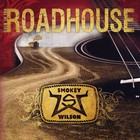
Back To The Roadhouse
- Year:
- 2009
- Tracks:
- 8
- Bitrate:
- 320 kbps
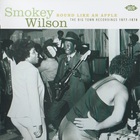
Round Like An Apple - Big Town Sessions 1977-1978
- Year:
- 2006
- Tracks:
- 17
- Bitrate:
- 320 kbps
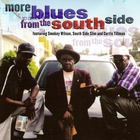
More Blues From The South Side (With South Side Slim & Curtis Tillman)
- Year:
- 2000
- Tracks:
- 10
- Bitrate:
- 320 kbps
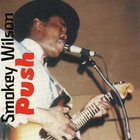
Push
- Year:
- 1999
- Tracks:
- 13
- Bitrate:
- 320 kbps
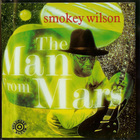
The Man From Mars
- Year:
- 1997
- Tracks:
- 12
- Bitrate:
- 320 kbps
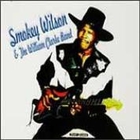
With the William Clark Band
- Year:
- 1997
- Tracks:
- 11
- Bitrate:
- 160 kbps
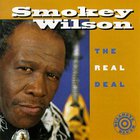
The Real Deal
- Year:
- 1995
- Tracks:
- 11
- Bitrate:
- 256 kbps
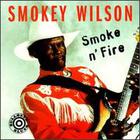
Smoke N' Fire
- Year:
- 1993
- Tracks:
- 11
- Bitrate:
- 256 kbps
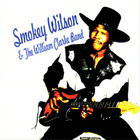
Black Magic
- Year:
- 1986
- Tracks:
- 11
- Bitrate:
- 320 kbps
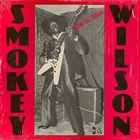
88Th Street Blues (Vinyl)
- Year:
- 1983
- Tracks:
- 9
- Bitrate:
- 320 kbps
 Mem Shannon
Mem Shannon  The Ford Blues Band
The Ford Blues Band